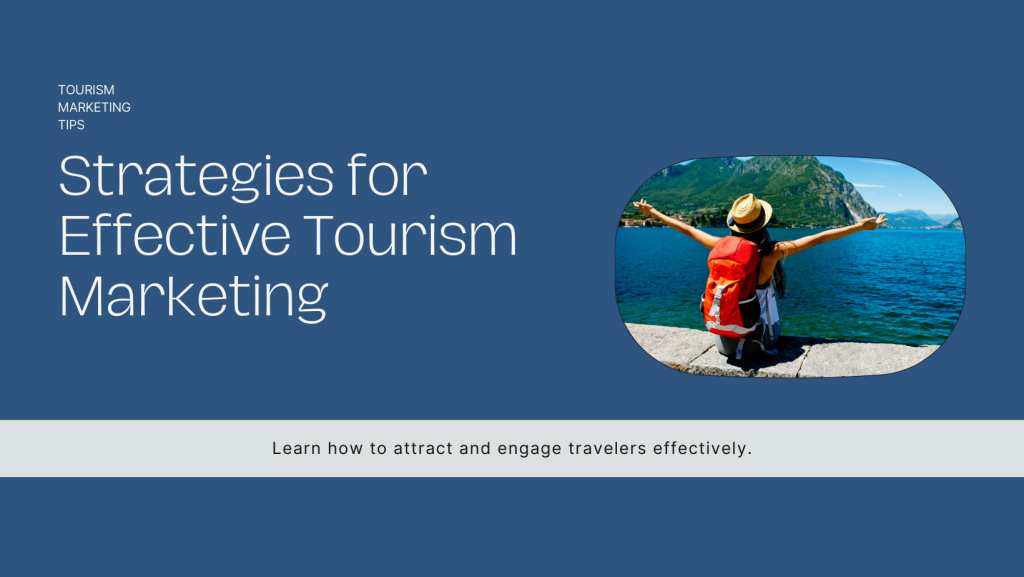To draw in tourists and encourage them to discover new places, marketers in the travel and tourism sector need to be inventive, creative, and strategic in their approach. Effective marketing techniques can help you stand out in a competitive market and draw customers to your destination, whether you’re advertising a luxury resort, an adventure tour, or a cultural event.
Storytelling is one of the most important techniques for effective tourism marketing. People are drawn to stories that arouse interest and elicit strong feelings in them, so developing an engaging narrative around your travel destination or experience can help you establish a strong rapport with potential visitors.
Storytelling may help bring your place to life and encourage people to explore deeper, whether it’s by highlighting the natural beauty of your surrounds, exhibiting your destination’s distinct culture and legacy, or sharing the experiences of previous guests.
In addition, attracting today’s tech-savvy travelers requires utilizing digital marketing channels. Digital marketing provides an extensive array of tools and strategies for connecting with and interacting with your target audience, ranging from influencer relationships and social media advertising to content marketing and search engine optimization (SEO). You can contact passengers where they are and provide individualized, pertinent material that speaks to their interests and preferences by utilizing the power of digital marketing.
Partnerships and collaboration are key components of tourism marketing. You may increase the effectiveness of your marketing campaigns and reach more people by forming partnerships with nearby companies, tourist destinations, and travel associations. In order to develop offerings and experiences that visitors will find engaging, you can utilize the capabilities and resources of several partners through collaborative marketing activities including joint advertising campaigns, package packages, and cross-promotions.
Ultimately, in order to maximize your return on investment and improve your strategy, you must measure the success of your marketing campaigns. You may learn a lot about what’s functioning well and where improvements can be made by monitoring key performance indicators (KPIs) including website traffic, social media engagement, booking conversions, and customer happiness.
You can make sure that you’re successfully reaching and interacting with your target audience and generating results for your destination by tracking and fine-tuning your marketing efforts on a regular basis.
In conclusion, a blend of inventiveness, originality, and strategic thinking is needed for efficient marketing in the travel and tourist sector. Through the use of digital marketing channels, storytelling, teamwork, and data-driven insights, you can develop marketing campaigns that captivate travelers and encourage them to experience everything your location has to offer.



